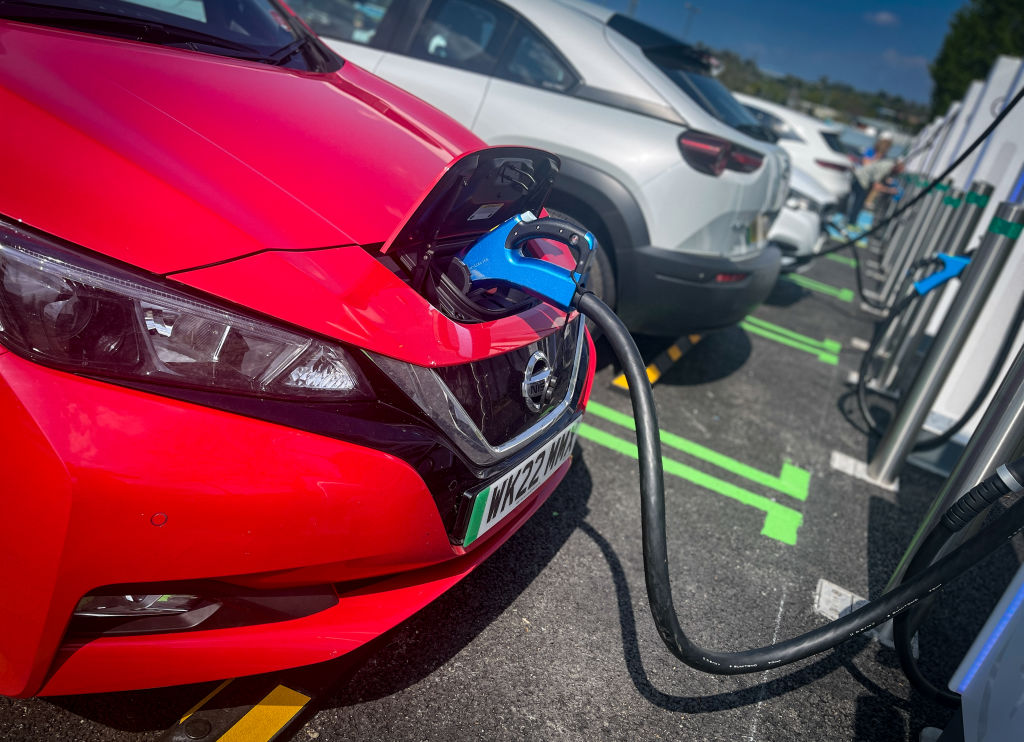“Get an electric car,” they said.
“You’ll save so much money on gas!” they said.
Well, whoever “they” are, “they” are leaving out some pretty large caveats about all those money-saving benefits of being an electric vehicle owner.
Will you spend a little less on gas if you drive an electric vehicle? Of course you will! At the end of the day, the simple fact does remain that electric vehicle owners will, on average, save $800 to $1,000 a year on fueling costs over an equivalent gasoline-powered car, according to Consumer Reports.
That amount is nothing to sneeze at, especially in the current economic climate. So let’s start there: “They” are correct that if you own an electric vehicle, you will, in fact, save money on gas. No problems with the facts of that statement.
Now let’s get to a very pricey caveat. Let’s visit America’s red-headed step-child to the North, Canada.
As CTV News Toronto reported, local resident Phyllis Lau got a nasty surprise when she took her 2018 KIA Soul electric vehicle in for a new battery.
The final price tag for Lau after parts, labor and taxes? A cool $23,000. Yes, as in the cost of some new cars altogether.
Lau faced that hefty price tag after learning that because her KIA exceeded the 160,000 km (99,419 miles) warranty limit, she would have to pay for it herself. KIA did offer the ever so gracious opportunity to cover half the cost, leaving Lau on the hook for “only” $11,500.
If you do the math, you can clearly see why “they” don’t like to bring this up. Those $800 to $1,000 savings every year? You would have to own your electric vehicle for 11 years minimum to have that offset Lau’s cut-in-half bill.
CTV News also spoke to another Canadian resident, Ken Edwardson, about his 2011 Lincoln MKZ Hybrid. Edwardson had bought his MKZ about four years ago, and when that battery died, he went through a similar experience as Lau.
“At the dealership, he looked it up online and said you’re not going to like this. It was about $15,000 for the battery plus labor and taxes,” Edwardson said. CTV notes that after labor and taxes, Edwardson’s bill was much closer to $20,000.
Of course, “they” already had planned for this line of thinking, and provided that thinking to CTV as well. University of Toronto Electric Vehicle Research Centre Director Olivier Trescases told CTV that complete battery failure is “rare” and should not deter anyone from buying an electric vehicle.
“Those very unfortunate owners of EVs that have to have their batteries replaced, yes it will be very expensive. It all comes down to whether the degradation of the battery is within the warranty clause or not,” Trescases added.
Trescases dismissive attitude towards “those very unfortunate owners” isn’t exactly a surprise. There’s almost a gleeful response from the elites when discussing the proliferation of electric vehicles. That glee makes a lot more sense when you start seeing those price tags (all that money ends up in someone’s pockets).
Both Lau and Edwardson ultimately decided not to spend the annual salary of most servers on battery replacements.
But don’t worry! CTV noted that a new EV company, VinFast, is making EV batteries with a twist: They come with a monthly subscription so you don’t have to buy those $20,000 replacements! Of course, the price of that subscription ranges from $3,108 a year to $4,188 a year.
Quick math: Whether you’re paying a $20,000 one-time fee or paying $4,000 annually, you are vastly outpacing the “additional” $800-$1,000 a year savings you’d otherwise be enjoying.
No wonder “they” don’t like talking actual numbers.
This article appeared originally on The Western Journal.
























